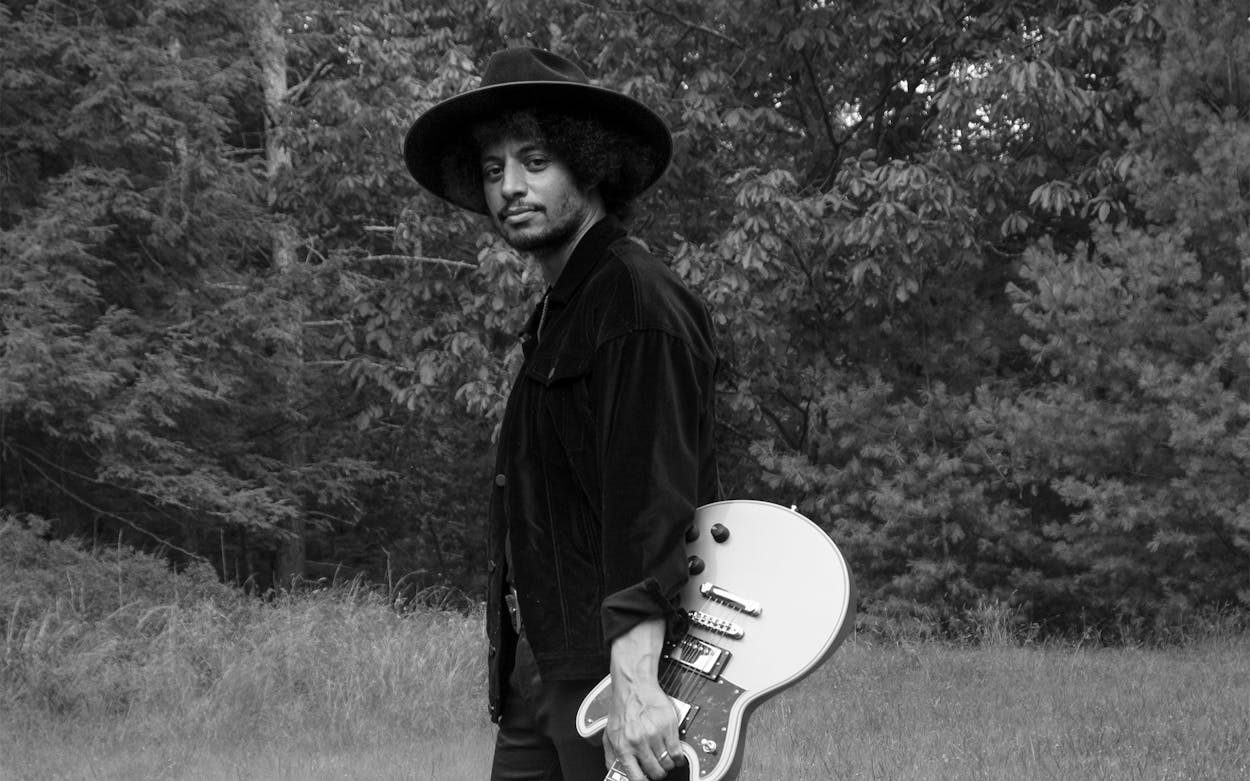Erykah Badu is undeniably in the pantheon of singular Texas musicians, alongside Ornette Coleman, Buddy Holly, Esteban Jordan, Willie Nelson, Omar Rodríguez-López, and Sly Stone. Over her 25-year career, the Dallas singer-songwriter-weirdo has helped shape the direction of hip-hop, soul, jazz, and rock and roll. She’s done this without being terribly prolific—she’s only released five studio albums, the most recent of which came out in 2010. (She also put out a live album just nine months after her 1997 debut, and a 2015 mixtape.) But when every release feels like a statement, that lack of regular production just furthers the artist’s mystique.
The newest statement to Badu’s timelessness comes not from Badu—we’re still waiting on LP number six—but from New York–based jazz vocalist José James. On & On (the name of Badu’s 1996 debut single) is the third release in a series from James in which he celebrates the work of a different iconic American original (previous entries honored Billie Holiday and Bill Withers), and one of the first attempts by a major artist to grapple with Badu’s songbook. For as important an artist as she is, there’s a dearth of covers of her work—which makes sense, given Badu’s inimitable idiosyncrasies. Her songs often include inside jokes, self-referential asides, shout-outs to friends, or evocative, absurd images that she sells through a winking self-awareness. Attempting to pull that off if your name isn’t Erykah Badu is a challenge.
James rises to that challenge with On & On mostly by engaging with it directly. His interpretations of the seven Badu songs he sings over the album’s 43 minutes are faithful to the originals, but also faithful to James’s own identity as an artist. It’s easy for jazz tributes to pop artists to play like novelty records, where some crooner sings “Black Hole Sun” like it’s a big-band tune. But jazz has always been a prominent part of the concoctions that Badu cooks up, and under James’s interpretation, it just becomes the main ingredient.
His rendition of her “Green Eyes” keeps the original’s bass line and vocal melody, but takes the listener on a different journey. He sings the song’s first part like a pop-jazz standard, something you could imagine, say, Michael Bublé singing—but a few minutes into the eleven-minute track, it’s clear that James, along with pianist Big Yuki and sax player Diana Dzhabbar, is doing something more ambitious, building toward sonic freak-outs that rise and then ebb. When he reaches the song’s emotional climax, a crescendo in which he has to deliver the line “Silly me, I thought your love was true / Change my name to Silly E. Badu,” he’s earned enough credit with the listener that it sounds right, like that’s a name-change that any betrayed lover should adopt.
Badu’s music has always been personal and specific to her, but James is a strong enough interpreter that he’s able to use those specifics to find the universality of her songs. On the early single “The Healer,” he again keeps one element of the original track—in this case, its stomping percussion—while replacing Badu collaborator Madlib’s original clinking, electronic beats with a Hammond B3 organ and saxophonist Ebban Dorsey’s horn. When he gets to a line Badu sang for her frequent collaborator J. Dilla (who’d died a few years before she recorded the song), James sings “this one is for Dilla” like he’s not just repeating the line, but dedicating his own recording to the Detroit hip-hop legend. Over and over with On & On, James finds a core of each track where his own sensibility overlaps with Badu’s, making for an experience that honors her compositions without reducing or simplifying them.
José James is a significant artist in his own right, the last jazz baritone vocalist standing, fifteen years into a career that’s seen him record for venerable jazz labels Blue Note and Impulse!, as well as London-based curator Gilles Peterson’s Brownswood and James’s own Rainbow Blonde (which released On & On). Hearing Badu’s work reinterpreted in this context, as jazz recordings from one of the genre’s more dynamic contemporary voices, is a reminder of how important she is as an artist. James’s jazz treatment of these songs places her in the same milieu as Holiday or Withers, as a titan of popular music whose creative output can stand apart from the artist who created it. If you’ve been paying attention to Badu at any point since her career took off in 1997, that affirmation isn’t strictly necessary—she’s long established herself as one of the true American originals, the sort of artist whose mere presence can make a rock star literally kneel at her feet while he performs alongside her. But it’s rewarding nonetheless to have the chance to hear the timeless qualities of her catalog brought to the forefront.
- More About:
- Music
- Jazz
- Erykah Badu








